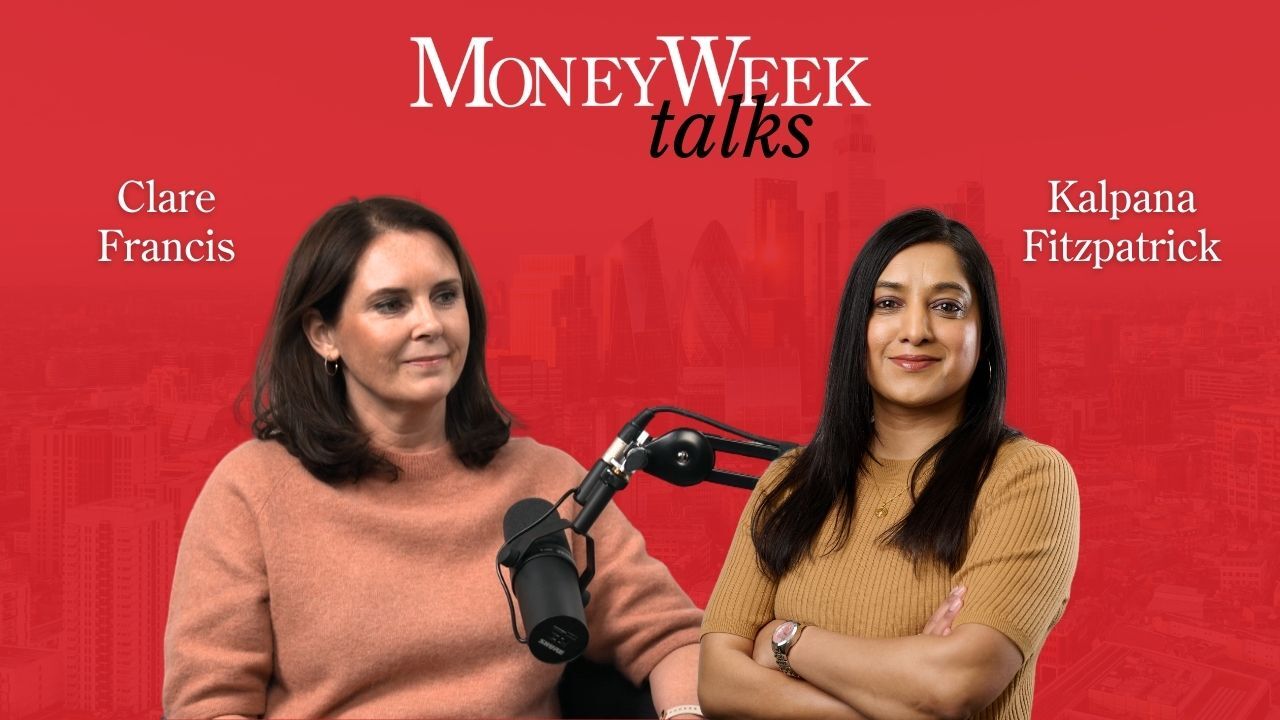Why won’t banks lend?
Much to the government's consternation, banks are still refusing to lend to smaller businesses, risking punitive taxes on profits and bonuses. But there are alternatives for businesses in the form of peer-to-peer lending? Simon Wilson reports.
Get the latest financial news, insights and expert analysis from our award-winning MoneyWeek team, to help you understand what really matters when it comes to your finances.
You are now subscribed
Your newsletter sign-up was successful
Want to add more newsletters?
As banks prove unwilling to lend to smaller businesses, other kinds of credit outfits are finding a niche, says Simon Wilson.
Is the credit drought easing?
The signs are mixed. According to the latest Bank of England statistics (from late May) the UK banks provided gross lending of £47.3bn in the first three months of the year. That's roughly in line with their agreed 'Project Merlin' target of £190bn for the year as a whole. But, worryingly, loans for small and medium enterprises (SMEs) the sector that tends to create jobs and drive recovery came in £2bn short at £16.8bn. The banks insist there is "muted demand" for loans to SMEs, but others aren't convinced. Lord Oakeshott, Lib Dem ex-Treasury spokesman, says the banks "did a very effective job with Project Merlin, pulling the wool over the eyes of the Treasury and No.10, but it's now falling apart because the banks still aren't lending and the bonuses roll on".
Is demand really 'muted'?
Some argue that it beggars belief that bonus-hungry bankers are turning away profitable business. And yet there's a mass of anecdotal and survey evidence that small businesses are indeed finding it much harder to get loans, because banks are being ultra-cautious and imposing onerous conditions. Banks talk of "muted demand"; businesses say they are fearful of asking for credit in case they trigger a "restructured" higher rate. For example, a Small Business Federation survey found that only 16% of members had recently applied for new bank credit, perhaps because 44% of those who did so were refused. The Business Secretary, Vince Cable, says that the constant refrain he hears from businesses owners is that banks are deliberately "discouraging" demand by charging high prices or showing a lack of interest in lending. He warns that banks will face new taxes on profits, bonuses and balance sheets if they don't lend what they agreed.
Try 6 free issues of MoneyWeek today
Get unparalleled financial insight, analysis and expert opinion you can profit from.

Sign up to Money Morning
Don't miss the latest investment and personal finances news, market analysis, plus money-saving tips with our free twice-daily newsletter
Don't miss the latest investment and personal finances news, market analysis, plus money-saving tips with our free twice-daily newsletter
What about personal credit?
It's a similar story in the personal credit and mortgage markets. In May, banks were charging the highest average rates on personal loans since 2000, at 12.7%. Gross mortgage lending is running at about £10bn a month, less than one-third of its 2007 peak. That's also lower than 2002, when houses were half the price they are now. Hamish McRae argued recently (in the Independent on Sunday) that what is happening to company lending is very similar to the situation for mortgages. "The boom sucked in more lenders, foreign banks in particular, and there was a huge amount of financial experimentation with new, complicated lending products. When the banking crash began, most of the foreign banks withdrew from Britain, and the complex-products business collapsed. Worse, the ability of banks to fund themselves on the money markets was severely weakened." That led to massive over-compensation and cherry-picking of only the safest customers as banks flipped from spraying money around to clawing it all back.
Any options besides bank credit?
According to the Finance and Leasing Association there was a 24% jump in so-called "vendor financing" raising loans from suppliers in the first quarter of 2011 compared with a year earlier. A total of £1.17bn was raised in this way, avoiding the need for bank loans. For other small businesses social (or "peer-to-peer") lending can be a way of raising smaller sums. The best known is Zopa in effect an online marketplace that brings together willing lenders (seeking a higher return than the banks are offering) with borrowers (seeking a lower interest rate). As Zopa's old tagline had it, the idea is that everybody gains but the fat cats. The site has been successful enough to celebrate its sixth birthday, but it is still a small player, with 2% of the overall personal loans market.
What about business-focused peer-to-peer lending?
Probably the best-known British player adapting the peer-to-peer (P2P') principle to business lending is the Funding Circle, which launched last year. Co-founder James Meekings says, "it's a simple proposition which allows individuals to maximise returns on their hard-earned cash while also allowing businesses of all sizes to borrow at lower rates than those set by the banks, with a quicker turnaround." The site says that in its first six months lenders offered £11.5m to businesses, earning an average yield of 8.3%. Lenders are encouraged to spread their risk across 20 different deals, and are able to sell on loans if they need to get their cash out. P2P is a nascent sector, and again, the figures are small. So far, the Funding Circle has about 4,000 members who have lent money to 152 businesses. But the loans are much cheaper than typical double-digit business loans from banks. A new entrant to the market worth watching is ThinCats.com a P2P-style operation launching a "new online marketplace". It lets "experienced investors bypass banks and make secured loans directly to British companies".
Howweak is credit growth?
The Organisation for Economic Co-ordination and Development (OECD) and the British Chambers of Commerce recently joined a growing chorus in lowering its expectations for UK growth, to 1.3% and 1.4% respectively. The government's deficit-reduction programme will "take the edge off the recovery", argues David Smith in The Sunday Times. The real problem facing the UK economy is the weak supply of money and credit. Before the financial crisis the broadest measure of the money supply (M4) was growing at more than 10% a year; now it's just 1.5%. As for lending to business, it has been falling since early 2009, and is down 4% year on year (6% for SMEs). So the credit drought is real.
Get the latest financial news, insights and expert analysis from our award-winning MoneyWeek team, to help you understand what really matters when it comes to your finances.
-
 The UK regions with the highest proportion of homes above the inheritance tax threshold
The UK regions with the highest proportion of homes above the inheritance tax thresholdHigh house prices are pushing more families into the inheritance tax trap across the country
-
 Are money problems driving the mental health crisis? MoneyWeek Talks
Are money problems driving the mental health crisis? MoneyWeek TalksPodcast Clare Francis, savings and investments director at Barclays, speaks about money and mental health, why you should start investing, and how to build long-term financial resilience.